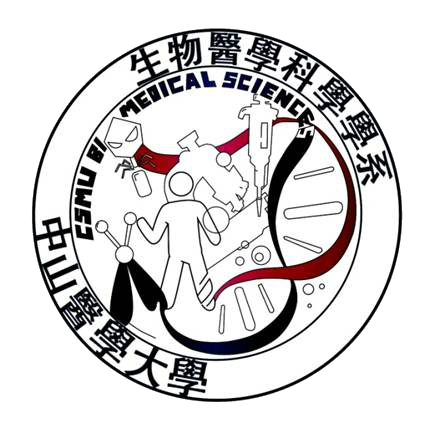
Ting-Hui Lin
(Associate Professor; Ph. D)
Phone
Tel(Office):886-4-2473-0022 ext 11805Interests in Research
Regulation of nitric oxide synthesis and gene expression in inflammatory disorders and tissue fibrosis by epigenetic mechanism.
Nitric oxide (NO) is a magic gas molecule critical to numerous biological processes, and acts an important host defense effector in the immune system. NO acts as a double-edged sword. NO produced by mammalian cells at an appropriate scale serves as a key signaling molecule in physiological processes; while excessive and unregulated NO synthesis has been implicated in pathophysiological conditions in human diseases, such as inflammatory disorders including glomerulonephritis (GN), chronic obstructive pulmonary disease (COPD), arthritis and so forth. Nitric oxide is a fairly short-lived molecule (with a half-life of a few seconds) produced from enzymes known as nitric oxide synthase (NOS). The major research activities of Dr. Ting-Hui Lin’s lab in the past years were to investigate the regulation of inducible nitric oxide synthase (iNOS) at transcriptional and post-translational levels in glomerular mesangial cells during glomerulonephritis and renal fibrosis.
Many of the physiological processes that are promoted by NO are mediated by the NO–cGMP signalling pathway. Moreover, NO signaling mediates physiolgocial functions by means of post--translational modification of proteins, mainly through S-nitrosylation of cysteine thiol residues. Therefore, NO also acts as a versatile epigenetic regulator. Epigenetics is defined as somatically heritable changes in gene activity and expression without alterations in the DNA sequences. The patterns of epigenetic modifications include DNA methylation, histone modifications, chromatin remodeling, and microRNAs. Epigenetics has become a central issue in many diseases during development and differentiation, or in response to environmental stimuli. The current research interests of Dr. Ting-Hui Lin’s lab are to investigate the epigenetic regulation of NO synthesis and gene expression during glomerulonephritis and renal fibrosis.
Publications (at most 7 publications in recent 5 years)
-
Kuen-Daw Tsai, Yi-Chao Lee, Bo-Yu Chen, Li-Syuan Wu, Shan-Yuan Liang, Ming-Yuan Liu,,Recombinant Klotho attenuates IFNγ receptor signaling and SAMHD1 expression through blocking NF-κB translocation in glomerular mesangial cells International Journal of Medical Sciences 2023; 20(6): 810-817.(SCI)
-
Wei-Chung Lai,Hsiao-Chi Hsu,Chun-Wen Cheng,hao-Hung Wang,Wan Chen Li,Po-Szu Hsieh,Tzu-Ling Tseng, Ting-Hui Lin and Jia-Ching Shieh 1,4,5,*,Filament Negative Regulator CDC4 Suppresses Glycogen Phosphorylase Encoded GPH1 That Impacts the Cell Wall-Associated Features in Candida albicans Journal of Fungi 2022; 8: 233-250.(SCI)
- Wan-Ju Wu 1, Sue-Hong Wang 2 , Chun-Chi Wu 3,4, Yi-An Su 3, Chin-Yin Chiang 3, Ching-Hong Lai 3,,IL-4 and IL-13 Promote Proliferation of Mammary Epithelial Cells through STAT6 and IRS-1 International Journal of Molecular Sciences 2021; 22: 1200-1202.(SCI)
-
YUAN‑TI LEE, YI‑YA FANG, YU WEN SUN, HSIAO‑CHI HSU, SHAN‑MEI WENG, TZU‑LING TSENG, TING‑HUI LIN and JIA‑CHING SHIEH,THR1 mediates GCN4 and CDC4 to link morphogenesis with nutrient sensing and the stress response in Candida albicans International Journal of Molecular Medicine 2019; 42: 3193-3208.(SCI)
-
Kuen-Daw Tsai,Wen-Xi Lee,Wei Chen, Bo-Yu Chen,Kuan-Lin Chen,Tzu-Chia Hsiao,Sue-Hong Wang,Yi-Ju Lee,Shan-Yuan Liang,Jia-Ching Shieh, Ting-Hui Lin,Upregulation of PRMT6 by LPS suppresses Klotho expression through interaction with NF-κB in glomerular mesangial cells Journal of Cellular Biochemistry 2018; 119: 3404-3416.(SCI)
-
Yu-Ching Huang, Ming-Shiun Tsai, Pei-Chi Hsieh, Jheng-Hong Shih, Tsu-ShingWang, Yi-ChunWang, Ting-Hui Lin, Sue-HongWang,Galangin ameliorates cisplatin-induced nephrotoxicity by attenuating oxidative stress, inflammation and cell death in mice through inhibition of ERK and NF-kappaB signaling Toxicology and Applied Pharmacology Toxicology and Applied Pharmacology 329 (2017) 128–139 2017; 329: 128-139.(SCI)
- Shang-Feng Tsai, Chang-Chi Hsieh,Ming-JuWu, Cheng-Hsu Chen, Ting-Hui Lin, MingliHsieh,Novel findings of secreted cyclophilin A in diabetic nephropathy and its association with renal protection of dipeptidyl peptidase 4 inhibitor Clinica Chimica Acta 2016; 463: 181-192.(SCI)
- Ting Chien, Tzu-Ling Tseng, Jiun-Yuan Wang, Yi-Ting Shen, Ting-Hui Lin,Jia-Ching Shieh,Candida albicans DBF4 gene inducibly duplicated by the mini-Ura-blaster is involved in hypha-suppression Mutation research 2015; 779: 78-85.(SCI)
- Ming-Shiun Tsai, Chia-Chih Chien, Ting-Hui Lin, Chia-Chi Liu, Rosa HuangLiu, Hong-Lin Su, Yung-Tsung Chiu, Sue-Hong Wang,Galangin Prevents Acute Hepato-Renal Toxicity in Novel Propacetamol-Induced Acetaminophen-Overdose Mice. Journal of Medicinal Food 2015; 18: 1187-1195.(SCI)
